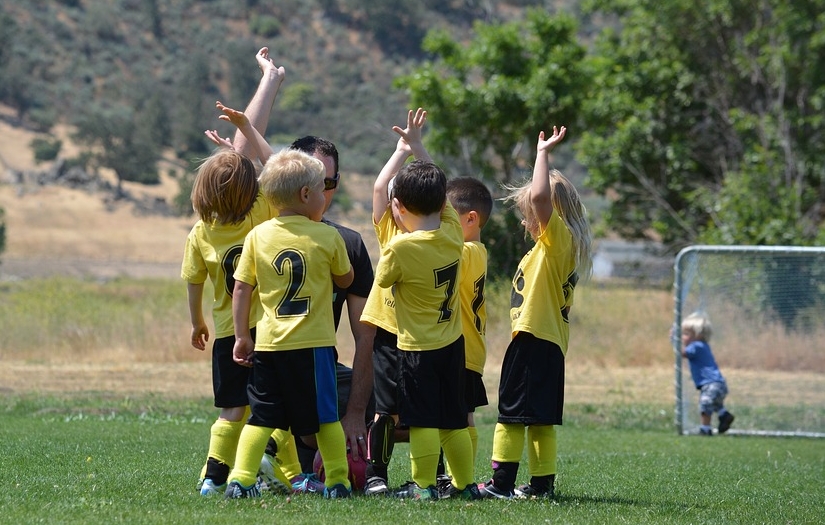....
Konflikte in wichtigen Beziehungen schlagen auf die Gesundheit. Eine Studie zeigt interessante Ergebnisse.
..
Conflicts in important relationships affect health. Astudy shows interesting results.
....
....
Worum geht es beim Streiten?
Wiki: "Streit, auch Zank, Zwist, Zwistigkeit, Zwietracht, Hader, Stunk, ist das offene Austragen einer Meinungsverschiedenheit zwischen zwei oder mehreren Akteuren, Personen, Gruppen oder auch Parteien (Politische Partei, Rechtsstreiterei, Kriegspartei), die nicht immer offenkundig und nicht notwendigerweise stets feindselig sein muss, oft aber auch (im Gegensatz etwa zur neutraleren Diskussion) von emotionalen Elementen begleitet oder getragen werden kann."
Ursache und Auslöser
Ursache eines Streites sind oft soziale Interaktionen, wo Interessenkonflikte von Einzelnen oder Gruppen aufeinanderprallen oder auch Rivalitäten ausgelebt werden. Die Auslöser können wichtig aber auch total unwichtig sein. Zu einem Streit muss immer die Voraussetzung vorhanden sein, dass die Akteure dafür auch bereit sind.
Haben Sie auch schon jemanden getroffen, mit dem es sich einfach nicht streiten lässt?
Menschen, die von Eifersuchtsgefühlen, Hass, Neid und Ehrgeiz unbeeindruckt sind, innerlich daran unbeteiligt leben, haben es viel einfacher, konstruktiv Konflikte zu einer Lösung zu führen.
..
What is the argument about?
Wiki: "Dispute, also quarrel, quarrel, dispute, discord, strife, stunk, is the open settlement of a difference of opinion between two or more actors, persons, groups or parties (political party, litigation, war party) that is not always obvious and does not necessarily always have to be hostile, but often (in contrast to the more neutral discussion, for example) can be accompanied or carried by emotional elements. "
Cause and trigger
A dispute is often caused by social interactions, where individual or group conflicts of interest collide or rivalries are lived out. The triggers can be important but also totally unimportant. The prerequisite for a dispute must always be that the actors are ready for it.
Have you ever met someone you just can't argue with?
People who are unimpressed by feelings of jealousy, hatred, envy and ambition, who are internally indifferent to them, find it much easier to constructively lead conflicts to a solution.
....
....
Stellen Sie sich vor, ein Ehepaar entschliesst sich, nicht mehr zu streiten!! Wenn heisse Themen anstehen, dann wollen sie diese auf der Sachebene angehen und nicht ihre Emotionen dominieren lassen. Was meinen Sie - geht das?
..
Imagine a married couple making up their minds to stop arguing !! When hot topics come up, they want to tackle them on a factual level and not let their emotions dominate. What do you think - is this possible?
....
....
Streitkultur ist Erziehungssache
Streitschlichtung wird in vielen pädagogischen Institutionen wie Schulen oder Kitas (Kinder-Tages-Stätten) gepflegt oder erarbeitet. Kinder sollen durch Übung befähigt werden, Auseinandersetzungen in sozialen Gruppen verbal zu verfolgen, um damit auch ihre Fähigkeiten der sozialen Kompetenz zur Streitschlichtung (bzw. verbalen Regulierung von Auseinandersetzungen) weiter zu entwickeln.
Streit und Konflikte gelten als normales Geschehen in einer sozialen Gruppe oder als Ereignis, bei dem mehrere Interessen sich konkurrieren. Da gilt es, die widerstrebenden Interessen friedlich und möglichst produktiv (für die Kollektiv-Interessen und nicht Individual-Interessen) zu koordinieren. Eine gute Übung !!
Manchmal erscheint es als vernünftig, die streitenden Parteien sich selbst zu überlassen und nicht elterliche Dominanz anzuwenden. Das macht dann am meisten Sinn, wenn die Kinder bereits eine Art Streitkultur entwickelt haben.
Regeln in Schulen
An vielen Schulen und auch in Kindergärten werden folgende Werte an die Kinder weitervermittelt:
Körperliche Gewalt soll nicht angewendet werden
Der Sprachfähigkeit wird Wertschätzung gegeben
Das Gemeinschaftsgefühls (Kollektiv) und die Selbstwahrnehmung wird gefördert
..
The culture of debate is a matter of upbringing
Dispute settlement is maintained or developed in many educational institutions such as schools or daycare centers (day-care centers for children). Through practice, children should be enabled to verbally follow disputes in social groups in order to further develop their social skills for dispute resolution (or verbal regulation of disputes).
Arguments and conflicts are seen as normal happenings in a social group or as an event in which several interests compete. It is important to coordinate the conflicting interests peacefully and as productively as possible (for collective interests and not individual interests). A good practise !!
Sometimes it seems sensible to leave the contending parties to their own devices and not use parental dominance. This makes the most sense when the children have already developed a kind of culture of argument.
Rules in schools
The following values are passed on to children in many schools and also in kindergartens:
Physical violence should not be used
Language skills are valued
The sense of community (collective) and self-awareness are promoted
....
....
In einer Schulklasse sich im Kreis formieren, ganz leise; der Klassenchef hat sich vorbereitet und Diskussionspunkte gesammelt. Dann geht’s los! Sachlich werden Streitpunkte angegangen. Jeder erhält das Wort. Jeder kann zu einer Lösung beitragen. Die Diskussionsregeln sind allen bekannt. Daran hält man sich. Totales Gruppenerlebnis, das für spätere Zeiten Gold-wert ist.
..
Form a circle in a school class, very quietly; the head of the class has prepared and collected points for discussion. Then it starts! Issues are addressed objectively. Everyone gets the word. Everyone can contribute to a solution. The rules of discussion are known to everyone. You stick to it. Total group experience that is worth gold for later times.
....
....
So fängt es zum Beispiel an:
An einem ruhigen Ort beginnend mit einer freundlichen Begrüssung
Was ist passiert? Jeder erklärt sein Verständnis des Erlebten und schildert den Sachverhalt, ohne die Schilderung der Gegenseite zu bewerten.
Warum ist etwas passiert? Die Hintergründe des Streits werden eruiert.
Was können wir jetzt machen? Nach einer Ideensammlung wird die beste Lösung erarbeitet.
Vereinbarung - Manchmal ist eine gemeinsame Vereinbarung - vielleicht sogar mit Unterschrift - ein Entscheidungsakt, der nachhaltige Wirkung fördert.
Persönlich habe ich diese Form der Konfliktlösung mit meinen Grundschülern öfters praktiziert und dabei festgestellt, dass die Kinder diese Art der Konfliktlösung als gerecht erleben. Es hilft ihnen, sich besser zu verstehen und auch die anderen und deren Interessen wahrzunehmen (siehe Empathie in EQ-BLOG).
Interessant ist auch, dass die Kinder die Autoritäten (Lehrer, Eltern) mit der Zeit gar nicht mehr gebrauchen. Sie kennen die Regeln, und jeder akzeptiert sie, weil sie total Sinn machen.
Wenn es in der Ehe kracht
Wenn die Freude zwischen Eheleuten versiegt, wenn Wörter rar und öfters zu Gewehrkugeln werden, dann – ja dann ist Reflektion angesagt.
Wissenschaftler aus den USA haben diese Konfliktsituationen studiert. Psychologen der Universitäten Michigan und Nevada haben 373 heterosexuelle Paare während 16 Jahren begleitet und immer wieder zur Lage ihrer Ehe befragt.
Sie haben die körperliche Verfassung verglichen von Paaren, die harmonisch zusammenleben, und von Paaren, die es miteinander nicht gut haben und häufig streiten.
..
This is how it starts, for example:
In a quiet place starting with a friendly greeting
What happened? Everyone explains their understanding of what they have experienced and describes the facts without evaluating the description of the other side.
Why did something happen? The background to the dispute is being investigated.
What can we do now? After collecting ideas, the best solution is worked out.
Agreement - Sometimes a joint agreement - maybe even signed - is a decision-making act that promotes lasting impact.
Personally, I have often practiced this form of conflict resolution with my primary school students and have found that the children experience this type of conflict resolution as fair. It helps them to understand each other better and also to perceive others and their interests (see empathy in EQ-BLOG).
It is also interesting that over time the children no longer need the authorities (teachers, parents). You know the rules, and everyone accepts them because they make total sense.
When a marriage breaks down
When the joy between married couples runs dry, when words become rare and often become bullets, then - yes, then reflection is the order of the day.
Scientists from the USA have studied these conflict situations. Psychologists from the Universities of Michigan and Nevada have accompanied 373 heterosexual couples for 16 years and repeatedly questioned them about their marriage.
They compared the physical condition of couples who live together harmoniously and couples who are not comfortable with each other and often quarrel.
....
....
Man kann für ALLES gute Gründe finden, wenn man will. Auch für effiziente Problemlösung. Wer analytische Fähigkeiten und Mut zur Reflektion mitbringt, hat grosse Vorteile. Denn diese Person kann den eigenen Stolz und ihre Blockaden erkennen und sich davon verabschieden. Ein aufeinander Zugehen, um der bedingungslosen Liebe willen, führt in eine neue qualitativ hochstehende Ebene, wo die Menschenwürde hoch im Kurs steht.
..
You can find good reasons for EVERYTHING if you want. Also for efficient problem solving. Those who have analytical skills and the courage to reflect have great advantages. Because this person can recognize their own pride and their blockages and say goodbye to them. Approaching each other for the sake of unconditional love leads to a new high quality level where human dignity is very important.
....
....
Wo Stolz ist, da sind auch Probleme
Dieser Spruch des weisen Salomo gefällt mir sehr, da er nach meinem Dafürhalten der Wahrheit entspricht. Schauen Sie sich einmal um. Stolze Menschen sind schneller in einen Streit verwickelt als demütige Menschen.
Wenn wir nicht so stolz und egoistisch wären, könnten die meisten Probleme in 5 Minuten gelöst werden!!!
Dieser Satz hat es mir angetan. Er hat mir aufgezeigt, dass wenn ich streiten will, einen Konflikt heraufbeschwören will, dass das eigentliche Problem nicht beim anderen, sondern bei mir liegt. Das hat mich dazu gebracht, in solchen Momenten mich besser zu analysieren. Und tatsächlich. Meistens waren egoistische Motive im Hintergrund, die meine Motivation zum Streit genährt haben.
Versuchen Sie doch mal, diesen Satz in Ihren Alltag mitzunehmen. Bin gespannt, welche Erfahrungen Sie damit machen werden!??
Streiten ist wie 'Saufen'
Zurück zur Studie - das Fazit: Die Unzufriedenen spüren ihre Beziehungssorgen am eigenen Körper. Wer häufig streitet, schüttet mehr Stresshormone aus und ist tendenziell länger krank, hat mehr Entzündungen aller Art und leidet an Appetitschwankungen. Das schlägt bei vielen Menschen aufs Herz.
..
Where there is pride, there are problems
I like this saying of wise Solomon very much because I believe it is true. Take a look around. Proud people get into an argument faster than humble people.
If we weren't so proud and selfish, most problems could be solved in 5 minutes !!!
I liked this sentence. It shows me that if I want to argue, to provoke a conflict, that the real problem is not with the other person but with me. That made me analyze myself better in moments like this. And indeed. Mostly there were selfish motives in the background that fueled my motivation to fight.
Try to take this sentence with you into your everyday life. I am curious what experiences you will have with it!
Arguing is like drinking
Back to the study - the conclusion: The dissatisfied feel their relationship worries on their own body. Those who argue often release more stress hormones and tend to be sick longer, have more inflammations of all kinds and suffer from fluctuations in appetite. That hits the heart of many people.
....
....
Die meisten wissen es: Mit Alkohol kann man Probleme nicht wirklich lösen. Kann man sie mit streiten besser lösen? Wie wäre es mit einer Versöhnungsstrategie? Aber ohne Alkohol im Rücken!
..
Most people know it: Alcohol doesn't really solve problems. Can you have better results with arguing? How about a reconciliation strategy? But without alcohol behind you!
....
....
Ausgeprägtere Symptome bei Männern
Wissenschaftlerin Rosie Shrout spricht von «sehr schädlichen» Einflüssen auf die Gesundheit, vergleichbar mit Leuten, die zu viel trinken oder rauchen.
Laut der aktuellen Studie treffen die Symptome sowohl Mann wie auch Frau; beim Mann aber sind sie ausgeprägter. Die Zahl der Konflikte schlägt sich bei ihm direkt auf die Gesundheit nieder. Bei der Frau hingegen ist die Streithäufigkeit weniger ausschlaggebend. Vielleicht werden darum die Frauen älter ??
Fazit
Wir lernen:
Erstens, die Ehe kann zu einem Teufelskreis werden, wo es nur noch abwärts geht. Unserer Konflikt- und Kommunikationsfähigkeit, die dank Motivation für eine glückliche Beziehung als Treiber viel Positives bewirken kann, nämlich einen Teufelkreis in einen Freundschaftskreis zu verwandeln, kommt grosse Bedeutung zu.
Zweitens, wer viel streitet, wird ähnlich krank wie jemand, der viel raucht oder viel trinkt.
Drittens, auf jedes «Trink nicht so viel» der Partnerin zu Tisch ist ein «Wohl wahr, mein Schatz» am gesündesten.
Viertens, lassen Sie sich von Ihrem Stolz nicht beherrschen. Wählen Sie einen anderen Weg, den Weg der Sachlichkeit und Nächstenliebe.
Damit korreliert die Studie mit anderen Forschungsarbeiten, welche die Ehe als Garantie für die Gesundheit gedeutet haben. Diese älteren Studien besagen: Verheiratete leben länger als Unverheiratete, Geschiedene und Verwitwete.
Nun haben wir grad gelernt: Dies gilt nur dann, wenn eine positive Streitkultur entwickelt und das Miteinander ein Füreinander geworden ist.
..
More pronounced symptoms in men
Scientist Rosie Shrout speaks of "very harmful" effects on health, comparable to people who drink or smoke too much.
According to the current study, the symptoms affect both men and women; but with men they are more pronounced. The number of conflicts has a direct impact on his health. In the case of women, however, the frequency of disputes is less important. Maybe that's why women are getting older?
Conclusion
We learn:
First, marriage can become a vicious circle where things can only go downhill. Our ability to deal with conflicts and communicate, which, thanks to our motivation for a happy relationship as a driver, can have a lot of positive effects, namely to transform a vicious circle into a circle of friends, is of great importance.
Second, those who argue a lot get sick just as much as someone who smokes or drinks a lot.
Third, for every “Don't drink so much” your partner at the table, a “Well, true, darling” is the healthiest.
Fourth, don't let your pride rule you. Choose another path, the path of objectivity and charity.
The study thus correlates with other research that has interpreted marriage as a guarantee of health. These older studies state that married people live longer than unmarried, divorced and widowed people.
Now we have just learned: This only applies if a positive culture of debate has developed and togetherness has become a ‘for one another’.
....
....
Viel Spass beim ‘Streiten’ !!!
..
Have fun ‘arguing’ !!!
....


























